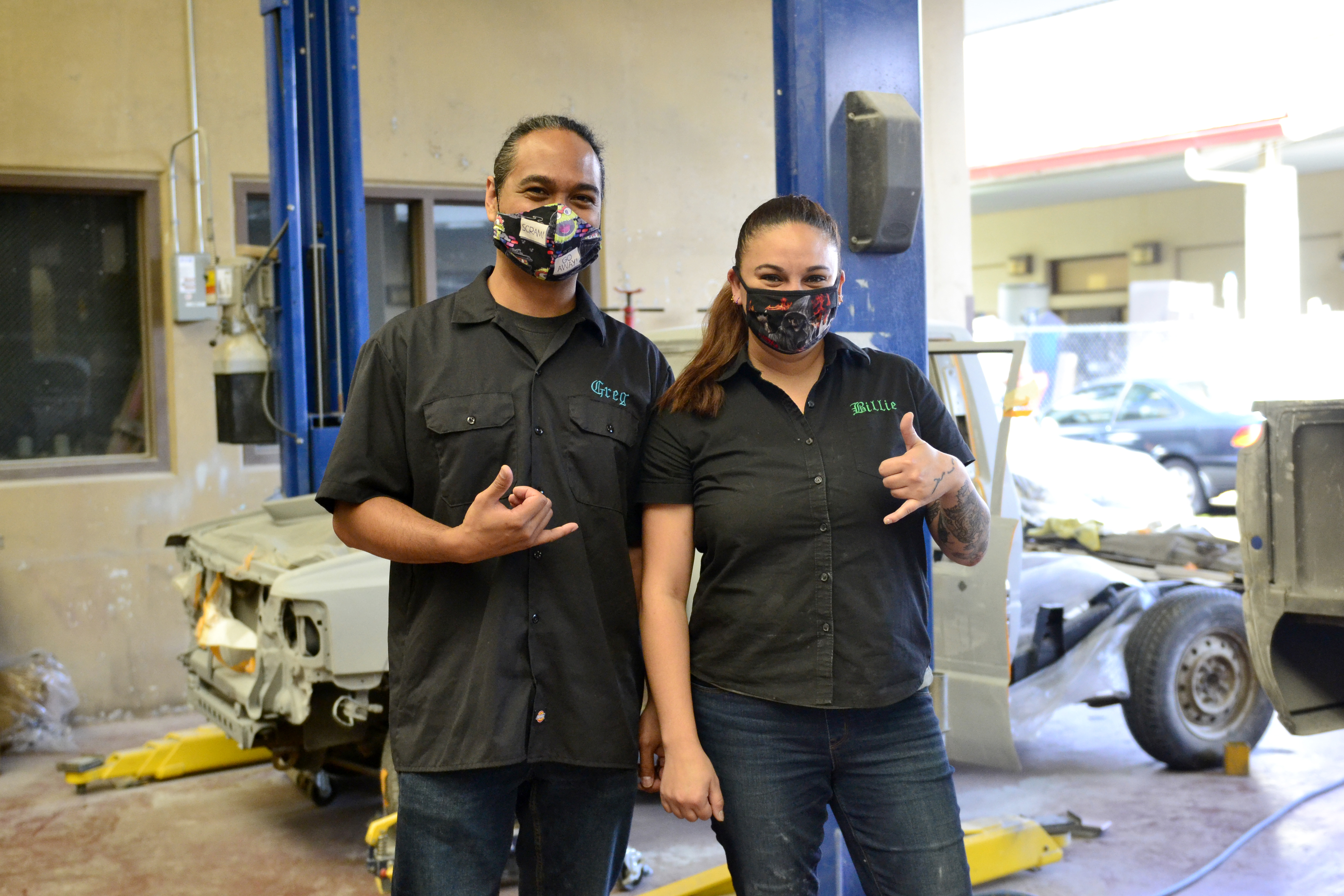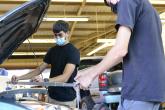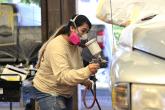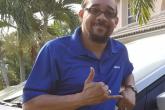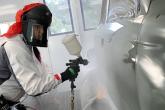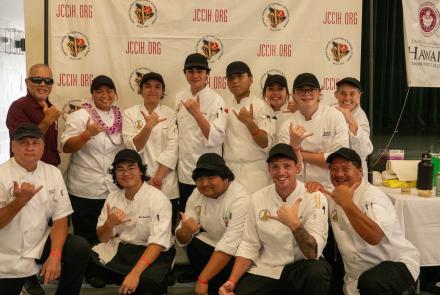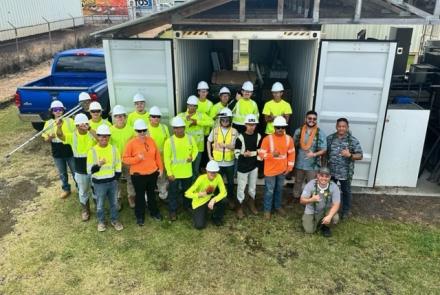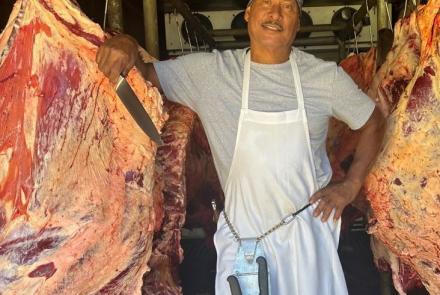Auto Body Repair and Painting program trains essential workers for local automotive industry
Greg Martines Dasalla struggled to find his way in civilian life when he returned home to Hawai‘i Island following his stint in the military from 2002 to 2010, which included deployment to the war in Afghanistan.
But a decision to enroll in the Auto Body Repair and Painting (ABRP) program at Hawai‘i Community College has proven life-changing, and less than two years after graduating, he already has a flourishing small business that he runs with his wife, Billie Martines.
“I got into it so much, this is what I want to be,” Greg said.
Greg and Billie operate Hi Five Auto in Volcano and are looking to find space in Hilo and expand. Greg graduated from the ABRP program in 2019, and Billie has enrolled and is currently an ABRP student.
“We got so busy that I wanted to help with the business but I didn’t know anything,” she said. “So I was like, ‘OK, I’m going to take the class.’”
►►►
Helping Hawai‘i Island residents like Greg and Billie learn the trade and build careers, while training a workforce to support the local automotive industry, has been the mission of the ABRP program since it was founded in 1966.
Hundreds of students have graduated over the years and many can be found in local collision repair shops around the island doing the vital work of safely fixing vehicles for customers. Though technology changes and challenges arise (like the COVID-19 pandemic), the mission continues.
“We produce future employees,” said Garrett Fujioka, a professor in the ABRP program. “We teach them the trade, and we also teach them the soft skills, the social skills, so when they get in the field they can get employed. We try to make them better people.”
Fujioka points out that workers in these automotive jobs, and other trades taught at Hawai‘i CC, are essential and have continued working throughout the pandemic.
“The repair shops, they never did shut down, they never went home,” Fujioka said. “These are essential workers from day one.”
“They’re still in demand,” added Colby Koreyasu, another ABRP instructor. “We got a call from a shop yesterday looking for techs.”
►►►
Koreyasu and Fujioka have continued to teach classes in-person during the pandemic while making modifications to keep students and the community safe, such as mask wearing, social distancing and staggered scheduling.
From their shop on the UH Hilo campus, they teach a wide variety of skills, from the “razzle-dazzle” custom paints, said Fujioka, to making structural repairs to restore vehicles to original equipment manufacturer (OEM) specifications, and more.
“We really push the collision repair,” said Fujioka.
The shop environment allows students to work on real-world projects for customers. Graduates of the program can earn an Associate of Applied Science degree in two years, and the curriculum is aligned with the Inter-industry Conference on Auto Collision Repair (I-CAR).
“You can go in all different directions when the degree is completed,” said Fujioka.
Taryll Moore, a 2015 ABRP graduate, for example, has used his knowledge to establish a successful career as an auto damage adjuster and currently works for GEICO on Hawai‘i Island. He has high productivity and accuracy scores and just got a promotion, he said, and credits the ABRP program for helping him succeed.
“A huge benefit of going through this program is having the hands-on experience, which actually gives me an edge,” Moore said. “This program, along with perseverance, hard work and dedication, can provide limitless opportunity within the industry and beyond.”
Greg and Billie are more focused on restoring old cars rather than collision repair. Their ultimate goal is to get as much training as possible, restore vintage vehicles and someday have a showroom. Greg is now getting a second associate degree from Hawai‘i CC’s Automotive Mechanics program; Billie has already studied automotive upholstery in a summer program in New Jersey.
“We want every certification we can get,” she said.
They are both grateful for the opportunities Hawai‘i CC has provided.
“I love it,” Greg said. “Basically if you show your teachers that you want to learn, they’ll give you all the resources they can.”

